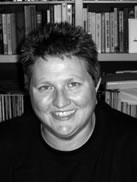 |
Rose
Collis is an author and journalist whose critically-acclaimed
biographies include 'A Trouser-Wearing Character: The Life
and Times of Nancy Spain' (Cassell, 1997) and 'Colonel Barker’s
Monstrous Regiment' (Virago 2001) Her latest book is Coral
Browne: ‘This Effing Lady’ (Oberon Books, 2007)
See Rose's web page here
|
| |
 |
 |
 |
 |
 |
| |
 |
 |
 |
 |
 |
 |
 |
 |
 |
 |
 |
 |
 |
 |
 |
 |
 |
 |
| |
|
|
| |
JOE
ORTON'S BRIGHTON - 2 OF 3 |
| |
HEY, MR PRODUCER: OSCAR LEWENSTEIN
Theatre and film impresario Oscar Lewenstein ran London’s
pioneering Royal Court Theatre from 1952 to 1975. He produced
the successful 1966 revival of Loot; the 1968 New York
production of Loot; and What The Butler Saw in 1969. He
lived in in Hove Seaside Villas, 11 Western Esplanade
— the same street whose famous residents, past and
present, has included Norman Cook and Zoe Ball, Susan
Stranks, Lew Norris, who designed Donald Campbell’s
speedboat Bluebird and, until recently the McCartneys.
The terrace was built by Michael Paget Baxter in 1908.
He was lord of the manor of Aldrington Basin. Paget Baxter
owned the whole of Shoreham harbour, as well as 5,000
acres on the South Downs. The houses in the terrace are
unique in southern Britain in that they own their beach
down to the low-water mark. One of them was sold for £3.25million
in 2007.
Lewenstein died at his home on February 23 1997. His 1994
memoirs bore the somewhat Ortonesque title, Kicking Against
The Pricks. But, as Lewenstein explained, ‘My title
is taken from the Bible, Acts of the Apostles, Chapter
9, Verse 5’.
CAUSE CÉLÈBRE: TERENCE RATTIGAN
For a number of years, the distinguished dramatist spent
his weekends at his home, at 79 Marine Parade, Kemp Town.
His plays included The Browning Version, The Winslow Boy
and Separate Tables, and his film credits included co-writing
the screenplay for Brighton Rock. He was a great admirer
of Orton and his work; he saw Entertaining Mr Sloane at
the tiny Arts Theatre in London in 1964 and thought it
was ‘the most exciting and stimulating first play
that he had ever seen’. He invested £3,000
in the show, which secured it a West End run. Rattigan
wanted to take his relationship with Orton a step further
—in 1965, he invited Orton to go with him on a trip
to Hong Kong but, when Rattigan made it clear he didn’t
want Halliwell with them, Orton turned down the offer.
Rattigan, however, continued to invest in Orton’s
plays and encouraged others, including his friend Vivien
Leigh, to do the same.
They remained close in other ways: in 1998, the Royal
National Theatre published the results of a survey of
more than 800 theatre practitioners to find the best plays
and playwrights of the 20th century. The poll was topped
by Arthur Miller. At number 15, was Terence Rattigan;
at number 16, Joe Orton;
HOUSE-HUNTING
16 March, 1967: Orton and Halliwell visited Brighton and
viewed several properties close to the station, as they
were considering buying a home in the town. The properties
they viewed were numbers 6, 29 and 42 Guildford St; a
property in Ditchling Road and several others in Queen’s
Gardens, Frederick Gardens and Kemp Street in the North
Laine area.
At that time, a centrally-located terraced house in Brighton
cost around £3,350 — nowadays, you couldn’t
buy a shed in central Brighton for that.
A WEEKEND IN BRIGHTON
GAY BRIGHTON 1967 AND THE SEXUAL OFFENCES ACT
In 1967, there was no ‘official’ gay scene
in Brighton but bars, such as Pigott’s, had been
catering to ‘queer’ customers since the 1930s.
For gay men, as Orton discovered when he visited the town,
‘cottaging’ in public toilets was one way
of meeting sexual partners. But most gay men lived in
fear of being prosecuted and/or blackmailed if their sexuality
was known. In Brighton, as elsewhere, the atmosphere changed
somewhat after July 1967, when the Sexual Offences Act
came into law, making sex legal between male ‘consenting
adults in private’ over the age of 21. However,
in December 1968, following the suicide of showbiz lawyer
David Jacobs — whose clients included Brian Epstein
and The Beatles — at his in Princes Avenue (where
Ringo Starr had spent his honeymoon), it emerged that
police had been interviewing gay men in Brighton (including
Jacobs) regarding a homosexual blackmailing racket.
By the time he came to Brighton on the evening of Thursday
27 July, 1967, Joe Orton’s life had turned around
in a way even he couldn’t have imagined. From his
bleak childhood in Leicester, impoverished from a lack
of money and love, to eking out an existence on National
Assistance, he had riches galore. Loot had won the Evening
Standard award for Best Play, and he’d been commissioned,
for £15,000, to write a film script for The Beatles
— which was the equivalent of all a writer’s
Christmases coming at once. Everyone wanted a piece of
Joe Orton, personally and professionally. At the same
time, virtually no-one, save Orton, wanted any part of
Halliwell.
Orton and Halliwell had come to Brighton to stay with
producer Oscar Lewenstein, ostensibly to discuss plans
for What The Butler Saw. Also in the house that weekend
were the Lewenstein’s two sons, Mark and Peter,
and Mrs Lewenstein’s mother. According to Orton’s
diary, he spent most of the weekend bored and frustrated.
On the Friday morning, Orton and Halliwell went for a
walk along the beach, towards Shoreham. Orton said: ‘It
was a thoroughly unpleasant walk. We had to clamber over
innumerable breakwaters which were thick with slime and
grime…”This is a terrible way to spend our
leisure”, Kenneth said. “We’d do ourselves
more good walking through Piccadilly Circus.”
|
|
|
